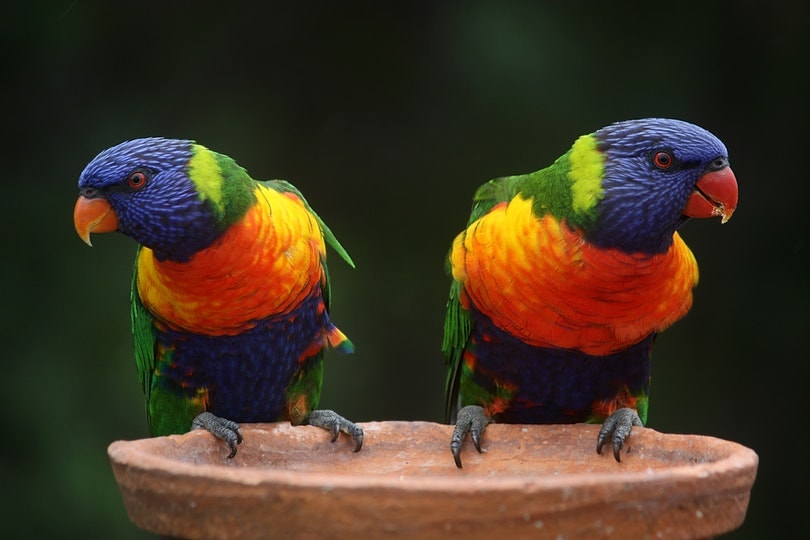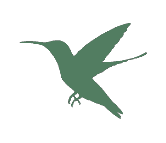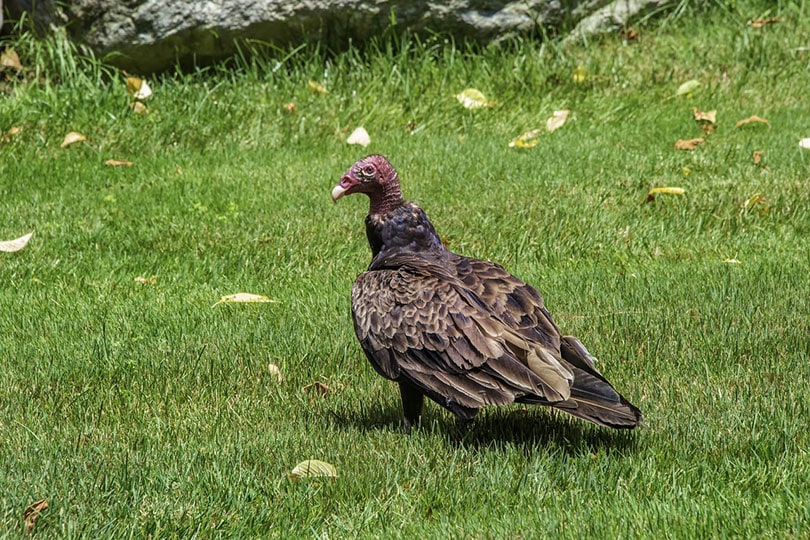Do Birds Sweat? How Do They Regulate Heat?
Last Updated on

It’s not uncommon to wonder if birds sweat. On a hot day or after some strenuous exercise, we are fortunate as humans to be equipped with a natural cooling system. Our pores open, and salty water is excreted while cooling us off in the process. Of course, not all animals are equipped with this luxurious cooling system.
So, what members of the animal kingdom are capable of sweating? It’s difficult to picture a bird sweating, but they do have skin underneath all those feathers. It would make sense that birds could be equipped with the ability to self-cool like humans, right? The truth is, birds do not have any sweat glands, and as a result, they can’t sweat1!
Still, birds often inhabit some of the hottest climates here on earth. So, how do birds stay cool?

How Do Birds Stay Cool?
Birds have a few ways of staying cool. First, they seek cooler areas by finding shade. On a hot day, we see them exhibit a familiar cooling behavior similar to dogs. It’s common to see birds panting as a method of self-cooling.
You also see birds go to the water as we do. Birds lose their heat through their feet, which is why you see them standing on one leg when it’s chilly. They’re trying to keep the heat in their feet. Alternatively, you can tell a bird is attempting to cool off when you see them walking in a puddle with both feet. In climates where water is not readily available, like those inhabited by Turkey Vultures, a more creative method has become a means of surviving the intense heat.
When humans sweat, the evaporation process is what cools us. Turkey Vultures don’t sweat. Instead, they’ve come up with a cooling method that involves peeing on their own legs. When the urine evaporates, it cools in much the same way our sweat does. Both sweat and urine are made up primarily of water, so when the bird can’t sweat and can’t find water, it makes sense that it would use the only tool at its disposal. Vultures aren’t out to impress anybody, anyways.
With all this talk about the heat and staying cool, you’ve got to wonder what happens in the opposite conditions.

How Do Birds Stay Warm in the Winter?
Similar to mammals, birds’ core temperatures must remain within a narrow channel of a few degrees to survive. Many birds have an excellent strategy for staying warm.
Migratory birds simply follow the heat.
After all, you can’t get cold if it’s summer all the time, right? It’s a good strategy and has worked for them for a long time, but not all birds migrate, so how do they stay warm?
If you’ve ever gone up a mountain to hike or snowshoe, you’ve probably been told by somebody at some point to wear layers. Birds don’t wear layers, per se, but they can insulate their bodies by fluffing their feathers out, which catches and warms pockets of air. That’s not their only strategy, though.
All winter birds make sure they pack on the pounds before the cold season sets in. This added fat acts as another layer to help keep them warm. They also roost and huddle together, and while they can’t sweat like humans, they can shiver.

Summary
While birds may not have the ability to sweat, that doesn’t mean they don’t stay cool. With a number of strategies and their own unique physical abilities and attributes, birds have a number of ways of staying cool or warm as they require.
Featured Image Credit: Pixabay, Pexels
Table of Contents
About the Author Robert Sparks
Robert’s obsession with all things optical started early in life, when his optician father would bring home prototypes for Robert to play with. Nowadays, Robert is dedicated to helping others find the right optics for their needs. His hobbies include astronomy, astrophysics, and model building. Originally from Newark, NJ, he resides in Santa Fe, New Mexico, where the nighttime skies are filled with glittering stars.
Related Articles:
10 Types of Hummingbirds in Arkansas (With Pictures)
8 Types of Hummingbirds in Nebraska (With Pictures)
5 Types of Hummingbirds in Idaho (With Pictures)
3 Types of Hummingbirds in Mississippi (With Pictures)
8 Types of Hummingbirds in Kansas (With Pictures)
5 Types of Hummingbirds in West Virginia (With Pictures)
5 Types of Hummingbirds in Ohio (With Pictures)
Where Do Nuthatches Nest? Nuthatch Nesting Habits Explained
